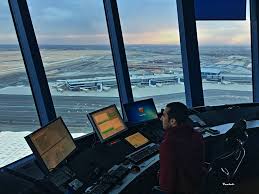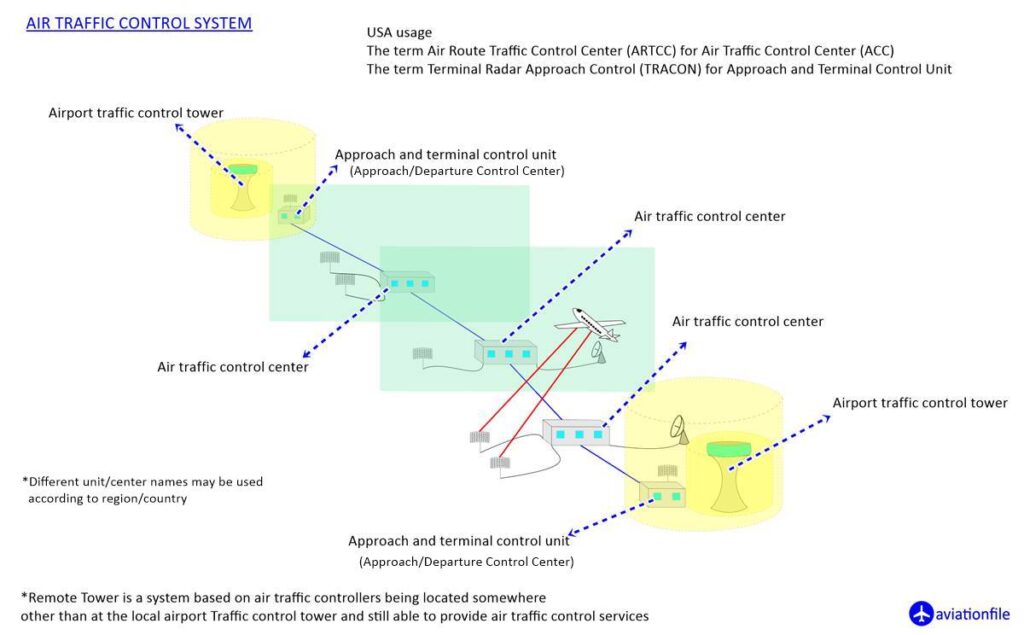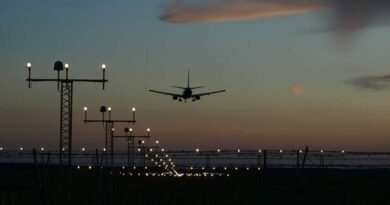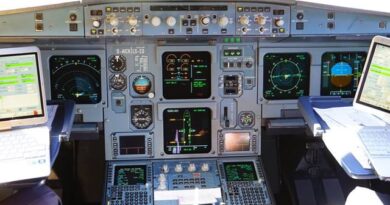Air Traffic Controller – Workload and Fatigue
In this article, we will examine the factors related to the air traffic controller workload and fatigue of. You can imagine that in a highly dynamic field such as aviation, there are many factors affecting workload and employee fatigue. For example, air traffic density, working hours, physical conditions etc. These may be the first factors that come to mind, but there are many more. Let’s examine it in more detail.

First of all, the thing that comes to my mind is:
Working Hours
In summary, the air traffic control service is provided every hour the aircraft traffic is active. And in the world, air traffic continues uninterruptedly 24 hours a day, 7 days a week. Therefore, air traffic controllers work 24 hours a day, 7 days a week (of course, working hours may change at the airports that are open locally and between certain hours). So how do air traffic controllers provide this uninterrupted service 24 hour a day, 7 days a week? Although the system varies according to the unit, controllers generally work with a shift system. For example: It can be in the form of a shift system with 4 teams (Day – night – of – of). In other words, the “A” team can work Monday daytime, Tuesday night, rest on Wednesday and Thursday and start working again Friday daytime. This is just one example, there are also 5-team systems or shift systems that divide the day into 3. Going back to our topic, to sum up, air traffic controllers have an erratic sleep life, especially in units that provide uninterrupted service. This system increases controller fatigue in the medium to long term.
Complexity of Area of Responsibility
Air traffic controllers can work in different units such as aerodrome control towers, approach control units, field control units. Wherever they work, air traffic controllers are briefly responsible for managing the air traffic safely and quickly in their area of responsibility during their employment. Therefore, the complexity of the airspace that the controller is responsible for is one of the most important factors that directly affect the workload and fatigue. I would like to point out that airspace complexity depends on many factors and is not just the number of traffic. Of course the number of flight traffic is an important factor, but it is not the only factor. For example, in the field control unit, air traffic is small in number, but an airspace with many restricted areas and bad meteorological conditions can be very tiring and stressful in terms of workload. Or, the workload of an airport control tower, where air traffic is very pleasurable, but has parallel runways and a well-established system, may not be too tiring. In summary, airspace complexity is an important factor affecting the workload and thus controller fatigue.
Physical Conditions
Physical conditions are generally a factor directly related to fatigue in every line of business. This is the case for air traffic controllers. Air traffic controllers with long working hours should have an environment to meet their needs, such as resting, sleeping and doing sports during non-active hours. Controllers working in units with this type of environment discharge more easily, rest and become more efficient. In addition to these, the physically appropriate design must be named in the working environment. For example, the environment should be airy and there should be heating and cooling systems. It must be quiet to ensure the concentration of the working controller. It should be clean and simple, without distracting unnecessary things. Long story short, physical conditions are directly related to the fatigue of air traffic controllers.
Psychological Support
Air traffic control is among the most stressful professions in many studies. Factors such as the need to make instant decisions, and the difficulty of correcting mistakes are some of the factors that make this profession stressful. Therefore, it is normal for air traffic controllers to need psychological support from time to time. There is also a specialized field called aviation psychology on this subject. And in some units there are also experts working on this subject. A psychological support that is available when needed can be very beneficial for air traffic controllers and reduce worker fatigue in the medium and long term.
Technology Usage
Today, many areas where technology is used for good purposes has made a positive contribution. Technological development is also very important for air traffic controllers. For example, in the past, paper strips were kept for each flight plan and the status of the aircraft was monitored with these strips. However, nowadays flight plans can be followed by an integrated or external system with radar monitors thanks to electronic strips. So hundreds of flight plans that were previously written by hand can now be followed digitally (some regions and units still use paper strips). Or let’s consider the rapidly developing remote tower technology today. This technology will undoubtedly have many benefits. For example, the working conditions of air traffic controllers could improve. Think geographically difficult to access b The control tower of an airport will be in a place that can be accessed much more easily with the remote tower system.
Decision Support Systems
Decision support systems are another factor closely related to technology. Let’s give a few examples in this field that can have a wide range of applications. Consider a decision support system that collects and analyzes data such as the estimated intensity of flight traffic, meteorological conditions, relevant notes, if any, to air traffic controllers, and informs the current team about the estimated workload hours in advance. How useful would it be, right?
Vacation and Off-time Opportunities
Air traffic control is a job that requires instant performance and requires intense attention. Therefore, working uninterruptedly for a long time can lead to lack of attention and performance. Therefore, it is important and necessary for air traffic controllers to get away from the work environment and rest, take a vacation at certain times. At this point, maybe financial opportunities should be added. As in every job, the work done should have a financial equivalent in proportion to its importance and criticality. Consequently, this is the case for air traffic controllers.
I hope you read it with pleasure. In addition to the above, many other factors can be counted. These factors can be further elaborated. Please indicate any other factors you can think of in the comments section.



